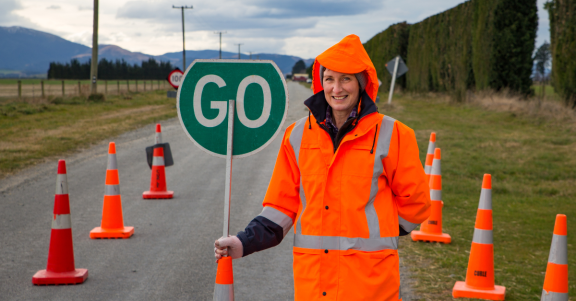Change is coming for Health & Safety
We're breaking down what you need to know about upcoming changes to workplace health and safety.
This week the Government announced a series of proposed changes to health and safety laws. The changes are intended to clear up confusion, bring down the cost of compliance, and allow firms to focus on what matters most – keeping people safe.
A series of announcements were made this week, focused on small business, recreational land owners, company directors and Approved Codes of Practice.
The changes won’t take effect until they’re passed through Parliament, which is expected at some point next year. The reforms will be subject to consultation, and many of the details are still to come.
Very soon we’ll be hosting a webinar for members with the latest on the changes – stay tuned for more news in the next few weeks. In the meantime, here’s what you need to know.
Carve-out coming for small, low-risk business
One of the first changes is to make small, low-risk businesses exempt from the general requirements of the Health and Safety at Work Act.
It would mean eligible small businesses only need to focus on “critical risks” and provide basic workplace facilities, rather than having to comply with broader requirements of the Act. To meet the primary duty of care, eligible businesses would only need to:
- Manage critical risks that could cause death, or serious injury or illness
- Provide worker supervision, training and instruction, and personal protective equipment (but only for critical risks)
- Provide first aid, emergency plans and basic workplace facilities for worker welfare (such as drinking water, suitable lighting and ventilation)
The definition of a small, low-risk business is still to be announced. Small businesses can easily be overwhelmed by the breadth of our health and safety laws, which add unnecessary complexity and cost.
We see this as a positive change to simplify things for low-risk small businesses, allowing them to focus on what matters most – managing critical risk.
Clarifying responsibilities for recreational land owners
The second change is to clarify health and safety obligations for property owners who allow their land to be accessed for recreational use. Current laws see landowners risk prosecution by WorkSafe if people are injured on their property, even if they aren’t involved in the activity itself.
This was brought to light in the Whakaari White Island disaster, where the owners of the land were prosecuted by WorkSafe, despite having no involvement in the tour company who licensed the use of their land.
The reforms would mean landowners are not responsible if someone is injured while doing recreational activities on their land. Health and safety responsibilities would lie instead with the organisations who run the activity.
Clarifying responsibilities of directors versus management
The Government is also moving to clarify the distinction between governance and operational management health and safety responsibilities – whether liability sits with company directors or operational staff.
The current law sees company boards take an active role in health and safety, sometimes duplicating the efforts of management and adding extra compliance and cost. The reforms would see day-to-day management of health and safety risks sit solely with management, leaving boards to focus on governance and strategic oversight.
Further details are still to be announced.
Greater use of Approved Codes of Practice
Industries with an Approved Code of Practice (ACOP) are proposed to be able to use those guidelines to fulfil their health and safety obligations, in place of the Health and Safety at Work Act.
ACOPs are sets of practical guidelines for a specific sector or industry on how to comply with health and safety laws. Under the proposed changes, ACOPs approved by the Minister could substitute for broader health and safety regulations.
The Government is also proposing to let industry bodies initiate ACOPs themselves.
Our view
These are positive steps in a series of moves designed to reduce red tape for business. Our current laws create confusion, duplication and cost – particularly for small businesses, who have fewer resources, less time for compliance and may not face the same level of risk. Each of these reforms is a step in the right direction – but there's still work to do.
The underlying regulations in the Health and Safety at Work Act are decades old, and in many cases out of date. Some of the moves announced this week will help replace these regulations, but a comprehensive update to the regulations and clear guidance on how to meet them would make a big difference in the longer term.
Workplace Relations & Safety Minister Brooke van Velden has signalled more changes are to come, and we’ll keep you updated on what they mean for you.
If you need support with workplace health and safety, Business Central’s expert team of health and safety consultants is here to help. You can also call the AdviceLine on 0800 300 362 to find out how we can help you.

